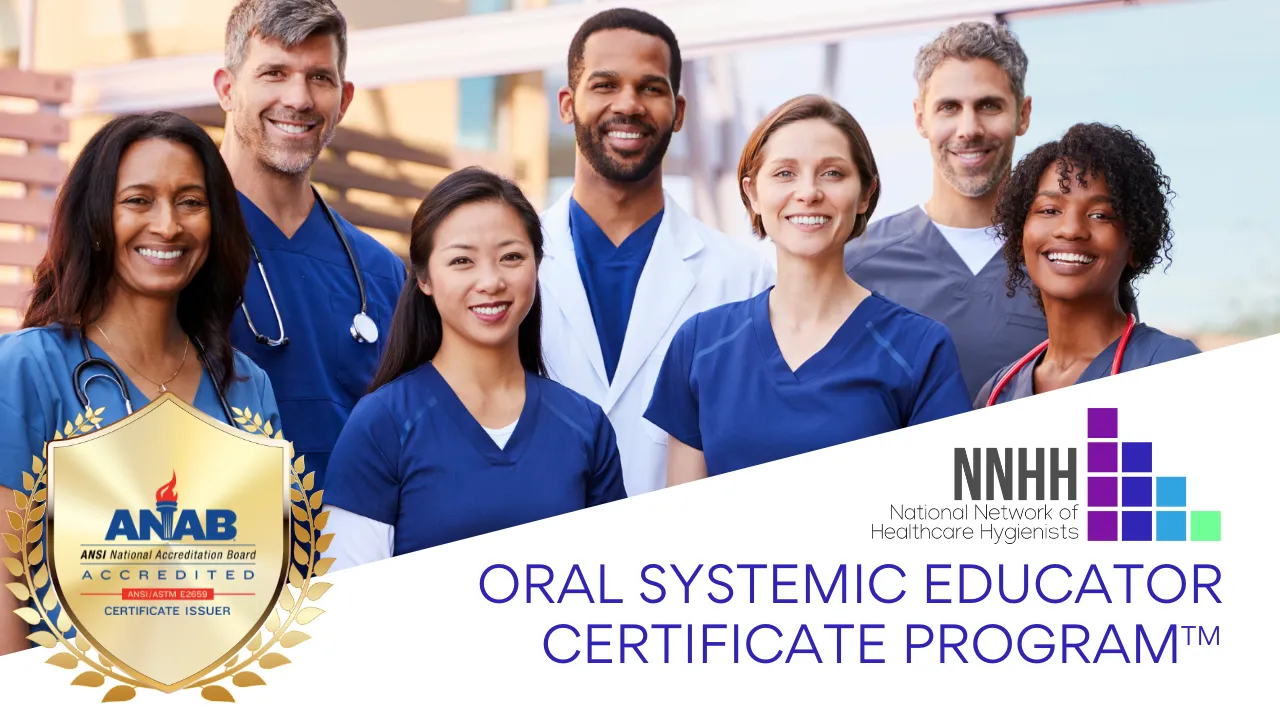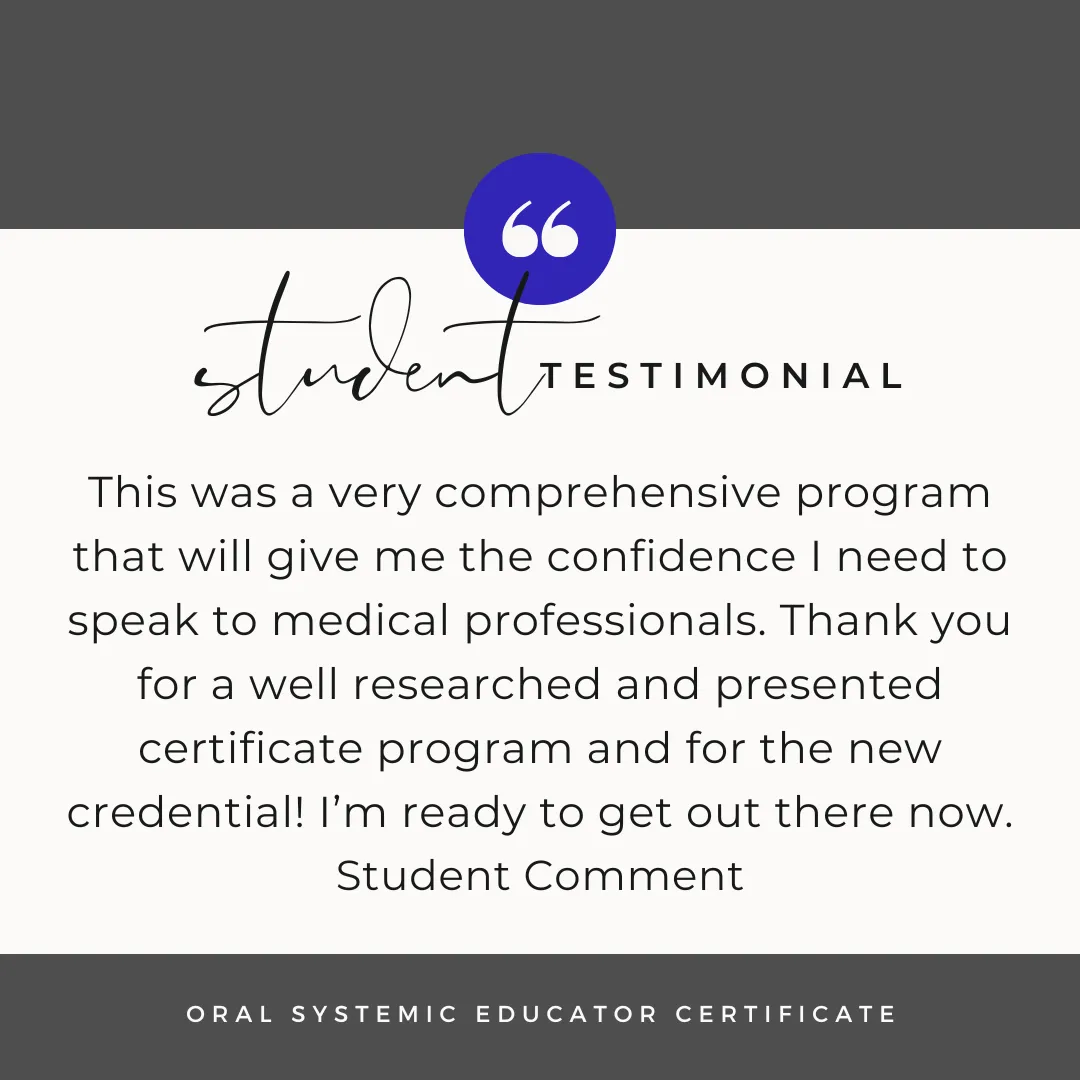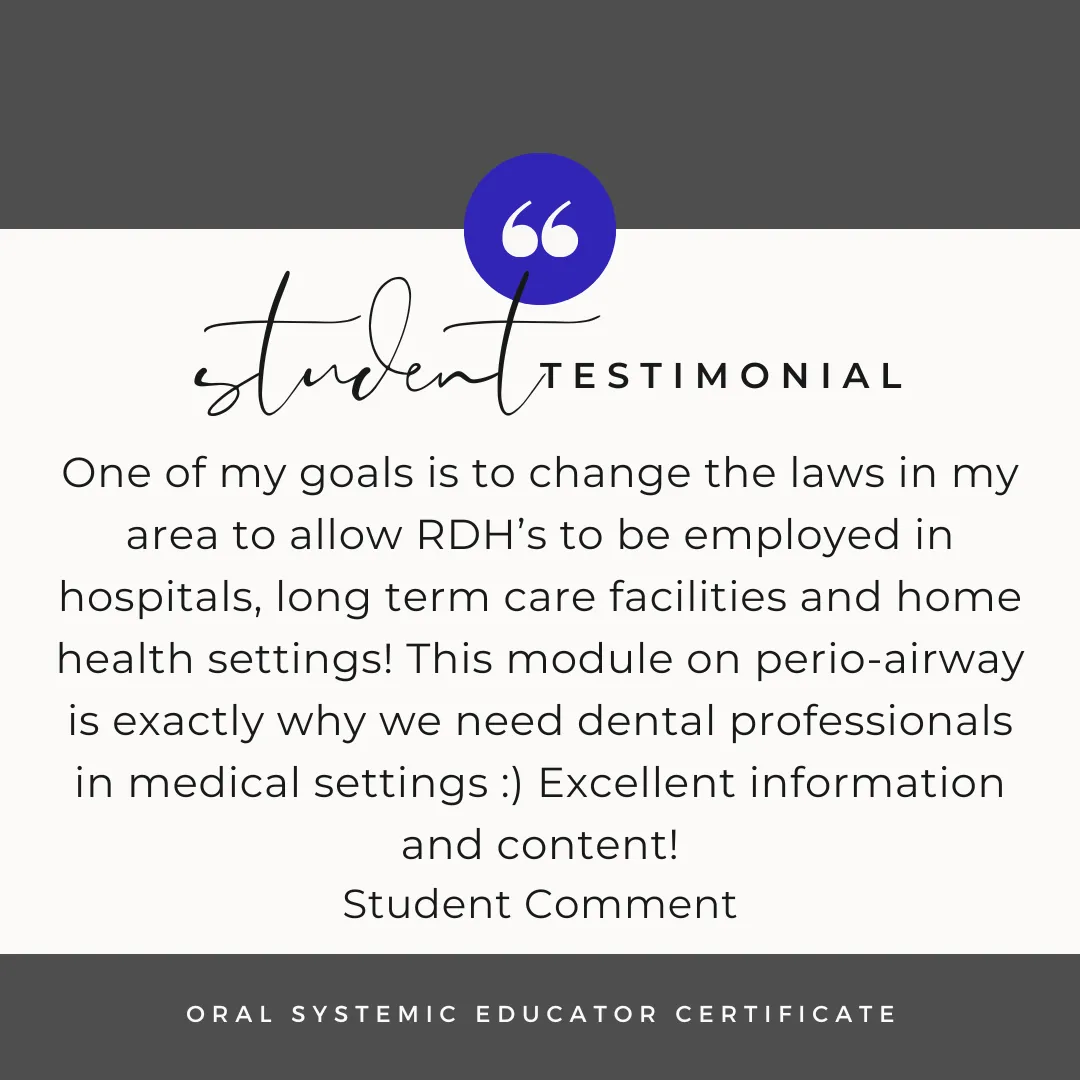
Payments as low as $116.74 per month for 12 months when you choose AfterPay during enrollment
Boost your confidence
EXPAND your career options
- Feel better prepared to educate your patients, loved ones, and the medical community on oral systemic health
- Prevent issues by understanding early warning signs
- Feel more confident working collaboratively
- Apply the knowledge chairside in a clinical setting
- Increase your production through education, not selling
- Own your career & make it what you want it to be instead of just working a job & suffering burnout
- Educate your local multidisciplinary teams & community health clinics
- Create new public health programs in your community
- Create your own position on an integrated care team
- Boost your resume so you stand out when that dream job posts
- Start your own speaking or consulting business
- Help your dental office become an integrated oral medicine office
- Practice true Patient Centered Care
- All while learning to take REALLY good care of yourself so that health issues do not stand in your way of your next level career

The 1st ANSI Accredited Certificate Program in Dental Hygiene in the World
"It took two years for ANAB to comb through the evidence we submitted, allowing time for refinement of content that did not meet the ASTM E2659 standard. The ethics and sustainability of our organization and leadership, as well as all major components of the individual Oral Systemic Educator program itself, were thoroughly examined; achieving a mark of quality assurance and excellence that traditional dental CE cannot offer."
Jamie Dooley, BIS, RDH - Director of Certificate Programs






4.8 out of 5 Stars for Overall Student Satisfaction!
"This is the information I've been craving my whole career! Going back to school wasn't an option for me. I needed something less expensive and more flexible. With this course I no longer feel like I need a new degree to do what I want to do. Thank you!"



Oral Systemic Educator Certificate Program™
CURRICULUM
Version 2.0
The instructors are subject matter experts and award winners in both the field of dental hygiene and their specialty. They have been handpicked by our Board of Directors and Education Committee for their dedication to oral systemic health, their expertise and experience in their specialty, and their commitment to collaborative care.
> Click the arrow on the right of the drop down box to view each instructor's impressive bio, course description, and objectives

NUTRITION & ORAL HEALTH COACHING Amy Szacilo, MS, RDH, PhD(PH) Candidate

AIRWAY, MYOFUNCTIONAL THERAPY & MEDICAL TERMINOLOGY Tamara Thomas, RDH, CSOM, CH-OSE

THE PERIO/ RESPIRATORY LINK Carla Roe, MHSc, RDH

CARDIOLOGY & INFLAMMATORY CASCADE Kriston Reisnour, BSDH, RDH, CCSH, COMS, CH-OSE

STRESS Sarah Eller, RDH, IPDH

ENDOCRINE SYSTEM Dr. Megan Reutter DHSc, RDH

DIABETES Jennifer Suminski, MS, RDH, CPhT

PREGNANCY & INFANT ORAL HEALTH Melissa Calhoun MSDH, RDH

PEDIATRICS Brooke Crouch, BSDH, RDH

GERIATRICS Angie Stone, BS, RDH, BLS, CDP

ONCOLOGY Kris Potts, BS, RDH, FAADH

MENTAL HEALTH Sherri Lukes, MS, RDH, FAADH

DIVERSITY Sonya Dunbar RDH, MHA

HOLISTIC MEDICINE & BIOLOGICAL DENTISTRY Frances Horning, RDH, EFDA

MEDICAL BILLING Laurie Owens, CPC, CPB, COC

COLLABORATIVE CARE Jessica Jensen

LEADERSHIP Dr. Kelly Tanner, RDH
REQUISITES TO EARN
THE CREDENTIAL CH-OSE
To earn a certificate & credential, enrollees must:
- Possess a valid dental license
- Complete the entire program
- Pass the final assessment
- Complete a Capstone Presentation
CAPSTONE PRESENTATION GUIDELINES
One of the requisites of receiving a certificate of completion and credential CH-OSE is completing a Capstone Presentation to apply the knowledge you gained and begin bridging the medical / dental divide in your local community.
To hold the title of Certificate Holder in Oral Systemic Education you must: Educate healthcare providers on oral systemic health (can be general or specialized).
Optional: Complete an internship for Practicum Level Educator
Want to share this information with a colleague, group or employer?
Download a printable flyer below. The QR code to the free trial is included!
Many employers are enrolling or reimbursing their hygienists and a group rate is available!

Frequently Asked Questions
What is the time commitment?
Is financial aid available?
What is the deadline to finish this course?
Is renewal required?
What credential will I receive?
How can I use what I learn?
What makes this program so different?







Thanks to a generous grant from Delta Dental Foundation of Michigan, Indiana & Ohio, 13 full scholarships were awarded to public health hygienists in those states.




